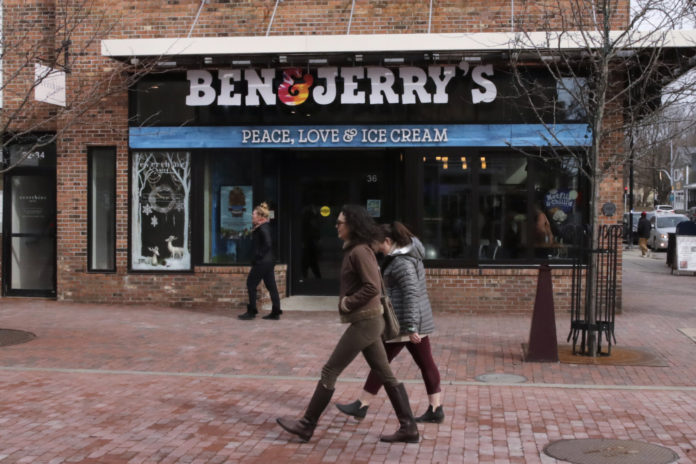Ice-Cream franchise, Ben & Jerry’s has lost its bid in blocking Unilever from resuming sales in the occupied West Bank. US District Judge, Andre Carter ruled that Unilever’s decision to license the ice-cream products to an Israeli firm did cause ‘irreparable harm to the company. Because of this, the US judge did not merit an edict by the court. “Further, the products sold in Israel and the West Bank will use no English trademarks, instead displaying new Hebrew and Arabic language Ben & Jerry’s trademarks,” wrote judge Carter, “the products sold in Israel and the West Bank will be dissimilar from other Ben & Jerry’s products, mitigating, if not eliminating, the possibility of reputational harm.”
Further in his decision, Carter said that Ben & Jerry’s reasonings did not meet the legal requirements for the court to block Unilever from halting its sales in the West Bank.
The Vermont-based ice-cream company sued Unilever in July, arguing that the selling of its product in the West Bank undermines its progressive social mission. In 2021, Ben & Jerry’s withdrew its sales in the occupied Palestinian territories, including East Jerusalem. It argued that conducting business in ‘illegal’ Israeli settlements was inconsistent with its values. Ben & Jerry’s backs a host of social justice causes.
This move garnered criticism from Israel’s advocates, with many accusing the company of anti-Semitism.
A crackdown on freedom of speech?
Some US states then moved to penalise Ben & Jerry’s and Unilever over the decisions. Many Palestinian rights supporters called the response as a familiar crackdown on critical views of Israel.
After a year of sustained pressure, including that from the Anti-Defamation League (ADL) – a staunchly pro-Israel advocacy group – Unilever decided to evade the ice-cream company’s decision, by licensing Ben & Jerry’s sales to a third party in Israel. The decision was welcomed by supporters, who claimed it to be a victory against the Boycott, Divestment and Sanctions Movement (BDS) – which aims to pressure Israel to end abuses against Palestinians. Unilever acquired the Jewish-American-founded company in 2000, but the deal allowed the company to maintain independence in its brand and social mission.
But the Jewish-American-founded company said that ending its sales in the West Bank was not part of BDS.
Over the years, the US saw a landslide number of laws prohibiting boycotts of Israel. This has drawn criticism from free speech advocates who argue that this is an effort to suffocate criticism of Israeli policies – going against the American constitutional right to freedom of expression. Amnesty International, along with Human Rights Watch – and several rights groups – accuse Israel of imposing apartheid against Palestinians.
zahraa@smile904.fm



